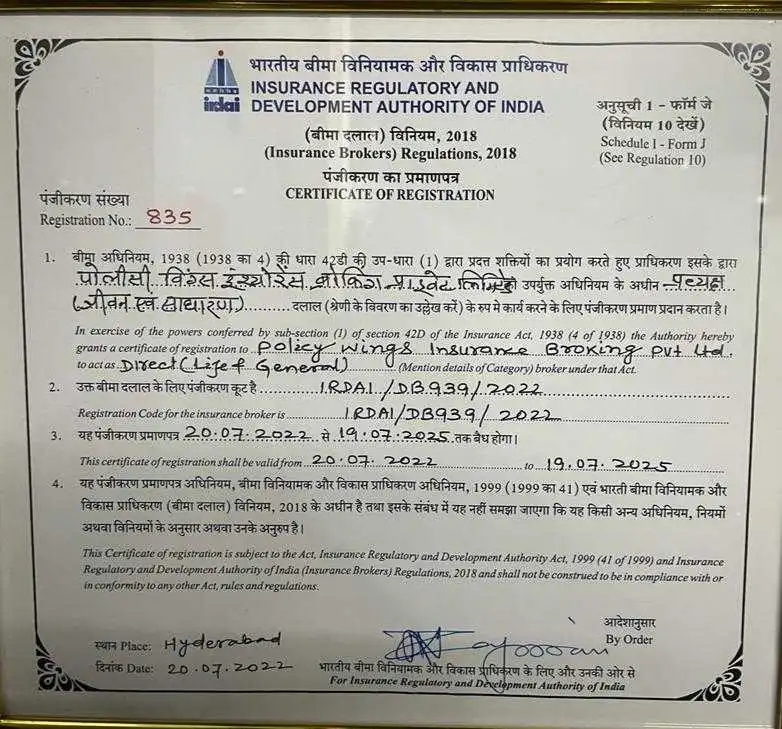How to Choose the Right Business Insurance for Your Industry?

Running a business is a rewarding venture, but it also comes with risks. Whether you’re a small startup or a large corporation, business insurance is essential to protect your assets, employees, and ultimately, your business. However, insurance needs can vary significantly depending on your industry, and choosing the right coverage can be overwhelming.
In this blog, we’ll break down how to choose the right business insurance for your industry, ensuring that your company has the tailored protection it needs to thrive, even when faced with unexpected challenges.
Understand Your Industry’s Specific Risks
The first step in choosing the right insurance is understanding the risks unique to your industry. For example, a construction company faces different challenges than a retail store, and a healthcare provider has risks that don’t apply to a tech startup. Knowing your industry’s common liabilities will help you determine which types of insurance are suitable for you.
Retail and Manufacturing: Businesses in this sector may need commercial property insurance to cover theft, fire, or vandalism, and general liability insurance to protect against customer injuries on the premises.
Professional Services: Lawyers, consultants, and accountants may need professional liability insurance (errors and omissions insurance) to cover potential negligence claims.
Determine Legal Requirements
Certain types of insurance are mandatory depending on the industry and your location. Ensuring compliance with local laws is crucial for running a successful business. For example:
Workers’ Compensation: Most jurisdictions require businesses to carry workers’ compensation insurance to cover medical expenses and lost wages for employees injured on the job.
Professional Liability Insurance: In sectors like law, medicine, and accounting, this coverage is often legally required in various jurisdictions.
Research the specific insurance regulations for your industry to ensure you’re meeting all legal obligations.
Evaluate Your Business Assets
Your business assets include physical property, equipment, intellectual property, and even your reputation. The right insurance coverage should protect the key elements to protect your assets. If you own or lease commercial space, property insurance covers damage to your building, equipment, and inventory due to incidents like fire, vandalism, or natural disasters. With the rise of cyber threats, businesses that handle sensitive data (such as customer information) should consider cyber liability insurance to protect against data breaches, hacks, or phishing attacks.
Consider Liability Coverage
Liability is one of the biggest risks businesses face, regardless of industry. Whether it’s customer injury, product malfunction, or professional mistakes, liability insurance protects you from costly lawsuits and claims. General Liability Insurance is essential for most businesses and covers third-party claims of bodily injury, property damage, and legal defence costs. Manufacturers and retailers should consider product liability insurance to protect against lawsuits resulting from defective products. Professional Liability coverage is essential for service-based industries and covers claims of negligence, errors, or failures in your professional services.
Account for Business Size and Growth
The size of your business and future growth plans should influence your insurance decisions. A small startup may only need basic coverage, but as your business grows, so will your exposure to risks. Make sure your insurance policy evolves with your business.
As businesses expand, unexpected events like natural disasters or a fire can halt operations. Business interruption insurance can cover lost income during these periods, ensuring you can recover without financial strain. For larger businesses or those expecting rapid growth, umbrella insurance provides additional liability coverage beyond the limits of your standard policy. This is especially useful if your business faces a high risk of expensive lawsuits.
Review the Insurer’s Industry Experience
Not all insurers are equal, and some specialize in certain industries. Working with an insurance company that has experience in your field can be beneficial. They will understand the unique challenges your business faces and offer tailored solutions.
Look for insurers that offer specialized policies for your industry. For example, a technology-focused insurance provider may offer better cyber liability coverage than a general provider.
Research the insurer’s reputation, especially regarding their claims process. A company with a smooth, customer-friendly claims process will save you time and stress when you need to file a claim.
Bundle Policies for Better Coverage and Savings
Many insurers offer the option to bundle different types of policies, which can save money while ensuring comprehensive coverage. Some insurance providers allow you to choose specific coverage types that fit your business needs.
Review and Adjust Coverage Regularly
Business needs change over time, and your insurance coverage should reflect that. Regularly reviewing your insurance policies ensures that you’re not paying for unnecessary coverage and that you have adequate protection as your business grows or evolves.
Conduct a periodic review of your insurance policies, adjusting coverage limits or adding new types of insurance as your business landscape changes. Working with an experienced insurance advisor can help you assess whether your coverage is still suitable or if it’s time to make changes.
Conclusion
Choosing the right business insurance isn’t just about meeting legal requirements, it’s about safeguarding your business from potential risks that could impact your operations and profitability. By understanding your industry’s specific risks, assessing your assets, and choosing tailored policies, you can ensure your business has the protection it needs to succeed.
Take the time to evaluate your business insurance needs carefully, and consult with an insurance expert if needed. With the right coverage, you can focus on growing your business with confidence, knowing that you’re prepared for whatever comes your way.








